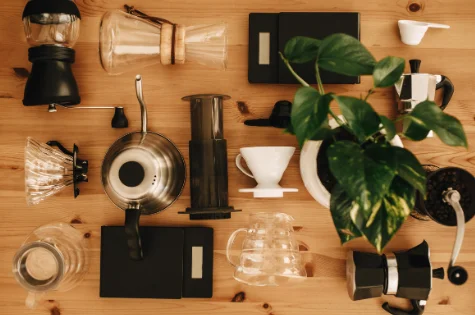Why Is My Coffee Sour: Ever taken a sip of your morning coffee only to be greeted by an unwelcome sourness? It’s a common predicament for coffee lovers, but fear not! Understanding the nuances of coffee sourness can transform your brewing experience from sour to sensational.
Table of Contents

Understanding Sourness
Have you ever wondered what causes that unpleasant sour taste in your coffee? Well, several factors contribute to it, ranging from the quality of your coffee beans to your brewing technique.
Quality of Coffee Beans
The freshness of your coffee beans plays a pivotal role in determining the acidity of your brew. Freshly roasted beans retain their flavors and aromatic oils, resulting in a rich and balanced cup of coffee. On the contrary, stale beans can develop sour and off-putting flavors over time.
Roasting Process
The roasting process impacts flavor of coffee. Lighter roasts tend to preserve the natural acidity of the beans, leading to a brighter and more acidic taste. In contrast, darker roasts develop deeper flavors with reduced acidity, offering a smoother and fuller-bodied experience.

Brewing Methods (Why Is My Coffee Sour? )
Did you know that the brewing method you choose can influence the acidity of your coffee? Each method, whether it’s pour-over, French press, or espresso, extracts flavors differently, resulting in varying levels of acidity.
Water Quality
Believe it or not, the quality of water used for brewing is often overlooked but crucial. Impurities in water can alter the taste of your coffee, contributing to sourness or other undesirable flavors. Opting for filtered water ensures a clean and pure base for your brew.
Grind Size
The grind size of your coffee beans affects the rate of extraction during brewing. Finer grinds expose more surface area, leading to quicker extraction and potentially over-extracted, sour flavors. Conversely, coarser grinds may under-extract, resulting in weak and acidic coffee.
Brewing Temperature
The temperature at which you brew your coffee can impact its acidity levels. Higher temperatures can extract more acids from the beans, intensifying the sourness. Experimenting with different brewing temperatures allows you to tailor your coffee to your preferred taste profile.
Extraction Time
The duration of extraction plays a crucial role in determining the balance of flavors in your coffee. Over-extraction can extract undesirable compounds, including acids, leading to a sour and unpleasant taste. Conversely, under-extraction may result in weak and sour coffee lacking depth and complexity.
Brewing Equipment
Your choice of brewing equipment can also influence the acidity of your coffee. Each brewing method requires specific equipment and techniques to achieve optimal results. Investing in high-quality equipment tailored to your preferred brewing method can enhance the overall flavor profile of your coffee.
Storage Conditions
Proper storage is essential for preserving the freshness and flavor of your coffee beans. Exposure to air, light, and moisture can accelerate the staling process, leading to sour and stale coffee. Store your beans in an airtight container in a cool, dark place to maintain their quality and flavor for longer.
Common Mistakes
Are you making any of these common mistakes that result in sour coffee? From improper brewing techniques to using low-quality beans, avoiding these pitfalls can significantly improve the taste of your brew.
Troubleshooting why is my coffee sour
Encountered a sour batch of coffee? Don’t fret! Follow these simple tips to troubleshoot and salvage your brew:
- Adjust your grind size to achieve the optimal extraction.
- Experiment with different brewing temperatures to find the sweet spot.
- Ensure your water is filtered and free from impurities.
- Check the freshness of your coffee beans and invest in high-quality, freshly roasted beans.
Flavor Adjustments
Balancing the sourness in your coffee is easier than you think! Try these flavor adjustments to tailor your brew to perfection:
- Add a pinch of salt to counteract the acidity.
- Sweeten your coffee with a touch of sugar or honey to balance the flavors.
- Experiment with alternative brewing methods to achieve a smoother, less acidic brew.
- Incorporate milk or cream to mellow out the acidity and enhance the richness of your coffee.
Conclusion
In conclusion, understanding why is my coffee sour is the first step towards brewing the perfect cup. By paying attention to factors such as bean quality, roasting techniques, brewing methods, and water quality, you can unlock a world of flavors and enjoy a consistently delicious brew every time.

